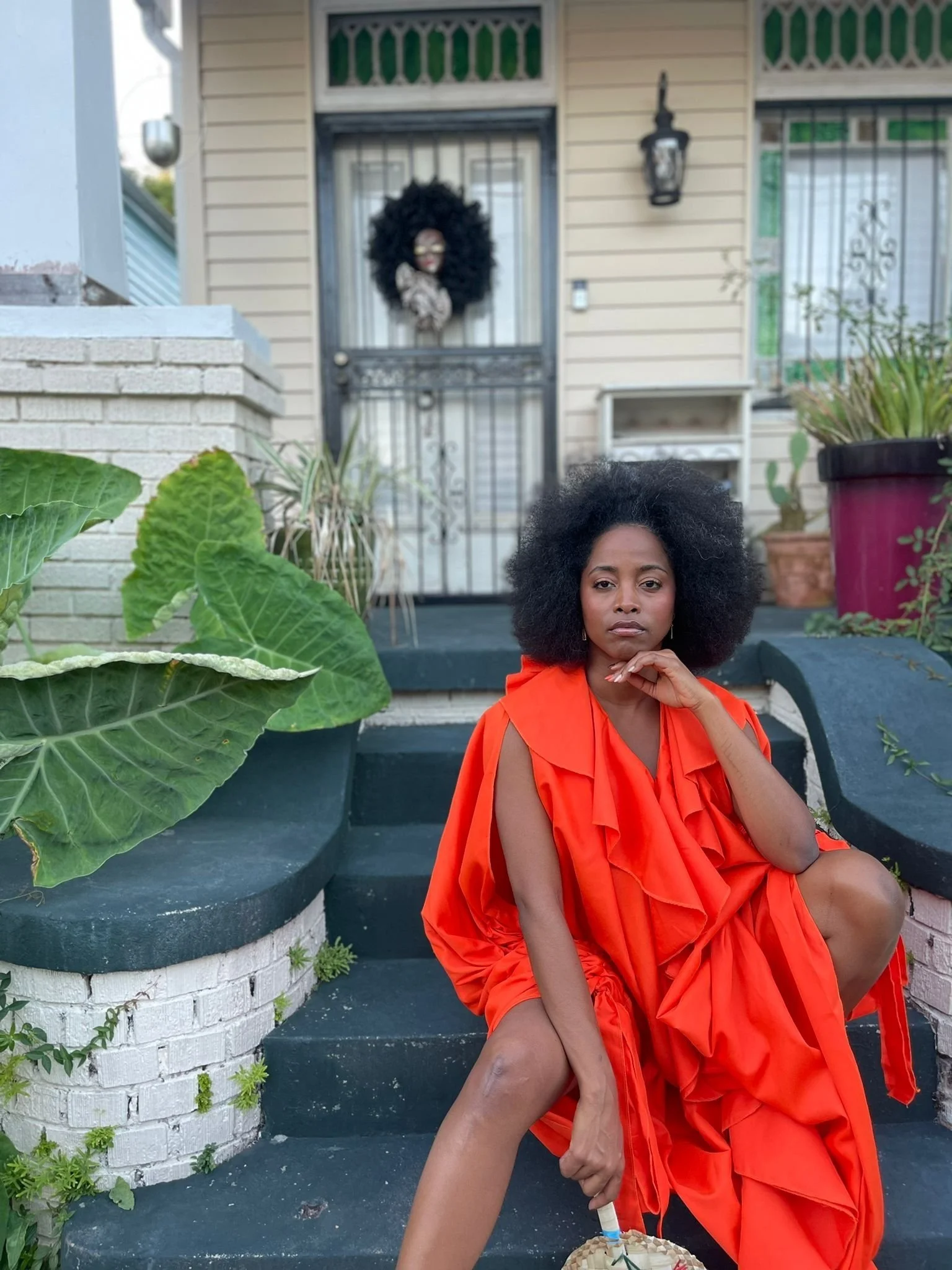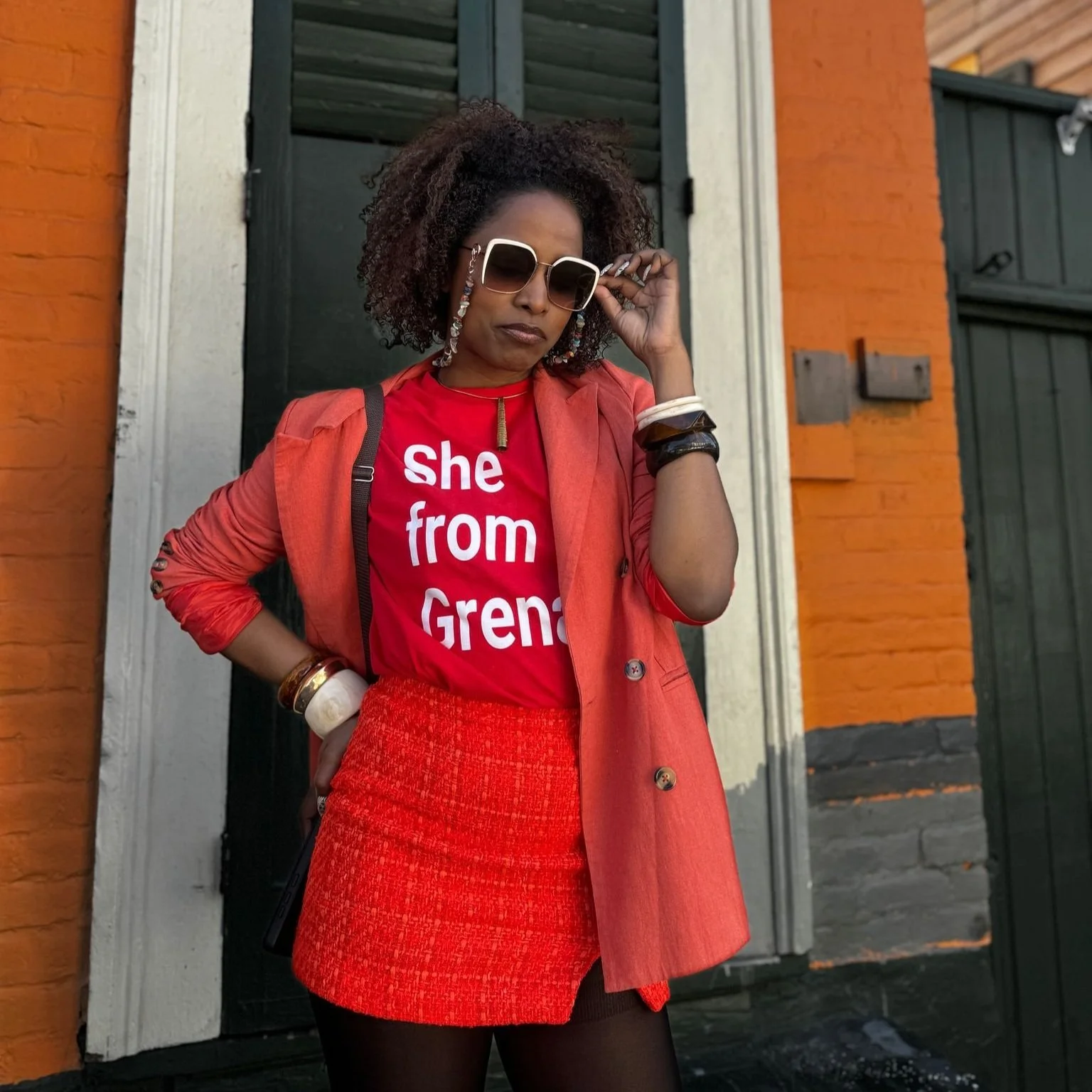Holding the Shame: Healing,Humour & The Power of Being Seen
Claudine Ogilvie in New Orleans (2025)
As a woman born into the turmoil of 1980s Grenada, it now seems to me almost entirely predictable that I would become an adult with an equally tumultuous mind. I made the decision to openly talk about my mental health struggles back in 2020, and at the time it was purely because I was tired of holding the shame. I was ashamed of not knowing—or even legally belonging to—my biological father; ashamed of being the only person I knew who, at 10 years old, would bite and hurt themselves to feel better. I was ashamed of feeling different, and profoundly sad in ways that I couldn’t explain or justify. I carried the shame of feeling like my life carried so little value that the world would be a better place without me in it.
I was tired of holding the shame of not being what I thought was the only way a Caribbean woman could be: strong, resilient, and able to face any situation completely unfazed. The shame was quite literally killing me.
So what did I do?
There were no revolutionary actions or groundbreaking revelations—but the simple steps I managed to take have created waves in my life that I’ve pleasantly watched ripple out to other women.
I sought help. I saw my GP and was started on antidepressants (which I’ve remained on, at various doses, for the past five years). I was quite worried about this in the beginning because I had heard so many stories about people feeling numb or no longer themselves on psychiatric medication. That was not my experience. I’ve been able to get a condition that was debilitating under control.
Secondly, I found myself a therapist of Caribbean heritage, because it was important to me not to have to explain or justify my culture or identity. At the very start, I was incredibly apprehensive—afraid of judgment and more shame. Luckily, I managed to find someone with whom I’ve developed great rapport and who is literally paid to keep my shameful stories to himself. While medication helped stabilise me on a biochemical level, therapy taught me the tools to cope with the things that had been causing me to crumble.
I had to take time off work. That was particularly hard for me because I expected little sympathy. But to my surprise, most people were incredibly supportive. (I learned some time later that I wasn’t hiding it as well as I thought I was—and the few people who noticed were just happy I was getting help.)
The third thing I did was probably even more controversial than a Black Caribbean woman taking prescribed medication for her mental health: I spoke about it publicly—on my social media accounts. Initially, I was tentative and spoke mostly in vague terms. Slowly, though, I found my stride and was able to bring my very dry humour into my stories. Funnily enough, that humour has served me very well in the past year.
Just about nine months ago, I began one of the hardest things I’ve ever had to experience. I found a mass in my right breast and was subsequently diagnosed with stage 2 breast cancer. I wish I could say I wore a pink ribbon and a brave smile and became as inspirational as the many women who had faced this before me. That would, however, be a lie. I cried, I panicked, and I became incredibly angry at myself and my body for its betrayal. I’ve had to witness—and experience—my body going through changes I was wholly unprepared for.
I’d be lying if I said I’ve now figured it all out. But it’s gotten easier. Still not easy—but definitely easier. I’ve had so many women offer me their advice, support, and love. I’ve had friends remind me of the healing that exists in laughter, and who’ve helped me find my pockets of joy. I’ve even managed to heal parts of my relationship with my mother that I thought were irreparable.
The thing we don’t talk about nearly enough is how much healing there is to be had through relationships with other women—both older and younger. Navigating through these relationships has helped me remember to give grace to my present self while simultaneously nurturing both my older and younger selves. Interestingly, I’ve also watched my mother learn to give kindness to her younger self through watching me—and that, in itself, has been worth all the things that brought me here.
Though I have doubts about what my legacy will be—because I haven’t created any art, made any medical breakthroughs, or even had children—I hope to be remembered for my authenticity. I hope I’ve taught at least one other person to be less ashamed of themselves, however flawed they may feel they are. I hope that one person is encouraged to try to heal their relationship with their mother or daughter. I hope that one little girl learns that you can play carnival and be a doctor—and that both of those parts of herself are valid.
About Claudine Ogilvie
Island girl. Paediatrician. Millennial aunty. Grenadian to the core. Claudine is passionate about Carnival, cultural connection, and good food—and she’s currently navigating the beautiful mess of mental health, healing, and work/life balance with honesty, heart, and humour.


